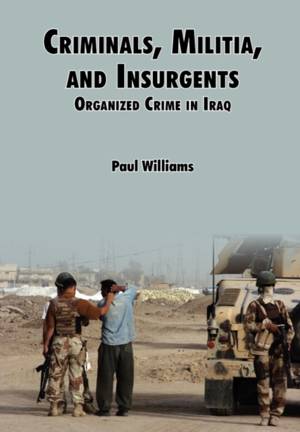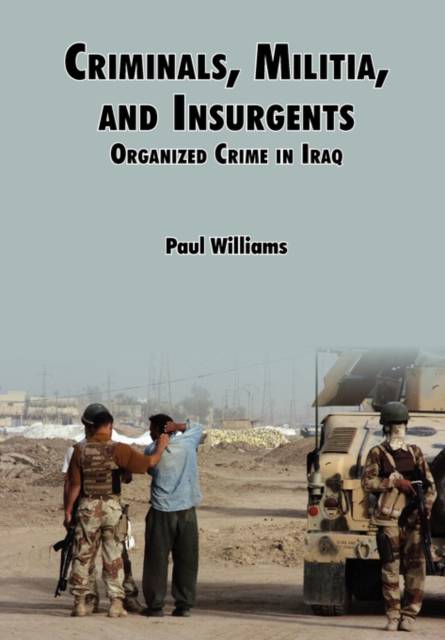
- Afhalen na 1 uur in een winkel met voorraad
- Gratis thuislevering in België vanaf € 30
- Ruim aanbod met 7 miljoen producten
- Afhalen na 1 uur in een winkel met voorraad
- Gratis thuislevering in België vanaf € 30
- Ruim aanbod met 7 miljoen producten
Zoeken
Criminals, Militias, and Insurgents Organized Crime in Iraq
Phil Willliams, Douglas C Lovelace, Strategic Studies Institute
Paperback | Engels
€ 35,45
+ 70 punten
Omschrijving
Dr. Williams identifies the roots of organized crime in post-Ba'athist Iraq in an authoritarian and corrupt state dominated by Saddam Hussein and subject to international sanctions. He also explains the rise of organized crime after the U.S. invasion in terms of two distinct waves: the first wave followed the collapse of the state and was accompanied by the breakdown of social control mechanisms and the development of anomie; the second wave was driven by anarchy, insecurity, political ambition, and the imperatives of resource generation for militias, insurgents, and other groups. This monograph looks in detail at major criminal activities, including the theft, diversion, and smuggling of oil, the kidnapping of both Iraqis and foreigners, extortion, car theft, and the theft and smuggling of antiquities. The author also considers the critical role played by corruption in facilitating and strengthening organized crime. He shows how al-Qaeda in Iraq, Jaish-al-Mahdi, and the Sunni tribes used criminal activities to fund their campaigns of political violence. Dr. Williams also identifies necessary responses to organized crime and corruption in Iraq, including efforts to reduce criminal opportunities, change incentive structures, and more directly target criminal organizations and activities.
Specificaties
Betrokkenen
- Auteur(s):
- Uitgeverij:
Inhoud
- Aantal bladzijden:
- 294
- Taal:
- Engels
Eigenschappen
- Productcode (EAN):
- 9781780391526
- Verschijningsdatum:
- 1/06/2009
- Uitvoering:
- Paperback
- Formaat:
- Trade paperback (VS)
- Afmetingen:
- 170 mm x 244 mm
- Gewicht:
- 471 g

Alleen bij Standaard Boekhandel
+ 70 punten op je klantenkaart van Standaard Boekhandel
Beoordelingen
We publiceren alleen reviews die voldoen aan de voorwaarden voor reviews. Bekijk onze voorwaarden voor reviews.








